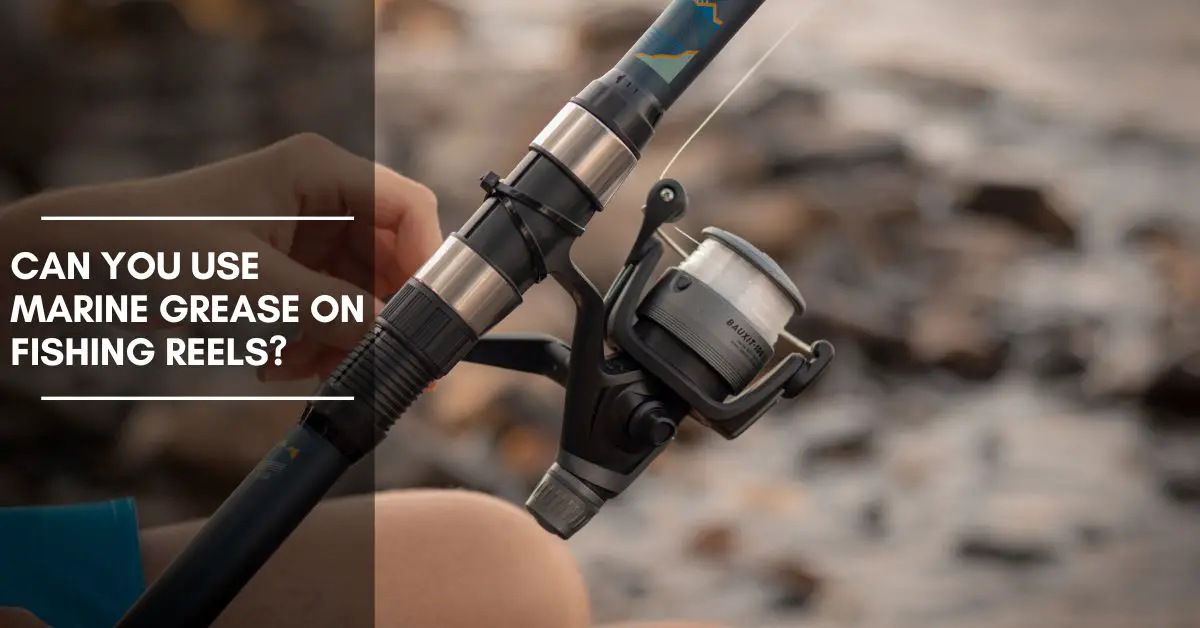The allure of the great outdoors and the thrill of landing a perfect catch often drive anglers to seek the best gear for their fishing adventures. One essential aspect of maintaining your fishing equipment is ensuring that your reels are properly lubricated.
In this article, we’ll dive into whether using marine grease on fishing reels is a viable option, discuss the benefits of proper lubrication, and explore alternatives to marine grease.
So, let’s get started and reel in some useful information!
There’s no denying that keeping your fishing reels in optimal condition can significantly enhance their performance and longevity. The good news is that lubricating your fishing reels with the right grease can make all the difference. But the question remains: is marine grease the right choice for this job?
If you’re looking for a comprehensive answer, you’ve come to the right place. In the following sections, we’ll examine this topic in detail, allowing you to make an informed decision when it comes to maintaining your fishing reels.
The Importance of Proper Lubrication
Maintaining Smooth Operation
The primary purpose of lubricating your fishing reels is to ensure their smooth operation. When you use the right lubricant, you’ll minimize friction between the reel’s moving parts, resulting in a seamless experience while casting, reeling, and retrieving your catch. Moreover, proper lubrication can reduce wear and tear, extending the lifespan of your equipment.
Protecting Against Corrosion
Another essential aspect of lubrication is protection against corrosion. Fishing reels are often exposed to harsh elements, especially when used in saltwater environments. A high-quality lubricant can help prevent rust and corrosion, safeguarding your reels against damage and keeping them in top shape for longer.
Marine Grease: A Suitable Option for Fishing Reels?
Understanding Marine Grease
Marine grease is specifically designed for use in aquatic environments, providing excellent water resistance and corrosion protection. It’s a thick, heavy-duty lubricant that is commonly used on boat trailers, outboard motors, and various other marine applications.
Pros of Using Marine Grease on Fishing Reels
Using marine grease on your fishing reels comes with a few notable advantages. Its superior water resistance and anti-corrosion properties can be particularly beneficial when fishing in saltwater, as it can help protect your reels against the harsh environment. Additionally, the thick consistency of marine grease can provide extended protection, as it is less likely to be washed off or worn away quickly.
Cons of Using Marine Grease on Fishing Reels
Despite its benefits, marine grease may not be the perfect solution for every angler. Its thick consistency may lead to a heavier, slower reel, which could impact your casting and reeling experience. Furthermore, marine grease may not be suitable for all types of fishing reels, as some manufacturers recommend using specific lubricants designed for their products.
Alternatives to Marine Grease
Fishing Reel Grease
Many companies produce grease specifically designed for fishing reels. These products are typically lighter and less viscous than marine grease, allowing for smoother reel operation. They still provide excellent water resistance and anti-corrosion protection, making them a great alternative for maintaining your fishing reels.
Silicone-based Grease
Silicone-based grease is another option to consider for your fishing reels. It provides excellent lubrication, water resistance, and corrosion protection while being lighter and less likely to interfere with the smooth operation of your reels. However, always ensure compatibility with your specific reel before using any silicone-based grease.
Conclusion
In conclusion, while marine grease can be used on fishing reels, it may not be the best option for every situation. Its thick consistency and potential impact on reel performance are factors to consider before making a decision. It’s essential to weigh the pros and cons based on your specific needs and the recommendations of your reel’s manufacturer.
For many anglers, fishing reel grease or silicone-based grease may be more suitable alternatives, offering excellent lubrication, water resistance, and corrosion protection without the drawbacks of marine grease. Ultimately, maintaining your fishing reels with the right lubricant will ensure their smooth operation and longevity, allowing you to focus on what truly matters: enjoying your time on the water and reeling in that perfect catch.
FAQ
Q: Can I use WD-40 on my fishing reels?
A: While WD-40 can help clean and protect your reels, it is not a long-term lubricant and should not be used as a replacement for proper fishing reel grease or oil. It is best to use a lubricant specifically designed for fishing reels for optimal performance and protection.
Q: How often should I lubricate my fishing reels?
A: As a general rule, you should lubricate your fishing reels at least once per season or after every few outings, especially if you’ve been fishing in saltwater. However, always consult your reel’s manufacturer guidelines for specific recommendations.
Q: Can I use regular grease on my fishing reels?
A: Although regular grease may provide some lubrication, it is not designed for the unique needs of fishing reels. It’s best to use a grease or oil specifically formulated for fishing reels to ensure optimal performance and protection.
Q: Do I need to disassemble my reel to lubricate it?
A: While it’s not always necessary to fully disassemble your reel for lubrication, doing so can help you apply grease or oil more effectively and identify any potential issues. Consult your reel’s manual for guidance on disassembly and lubrication.
Q: How do I know if my reel needs lubrication?
A: Signs that your reel may need lubrication include difficulty casting or reeling, excessive noise, or visible rust or corrosion. Regular maintenance, including lubrication, can help prevent these issues and keep your reel in top condition.

